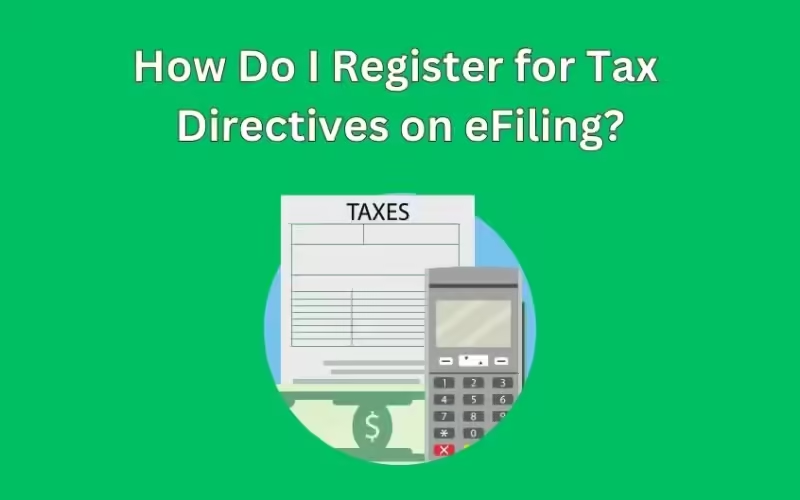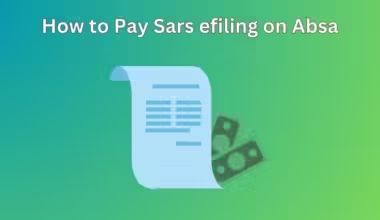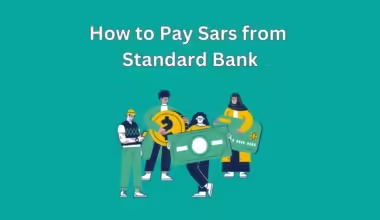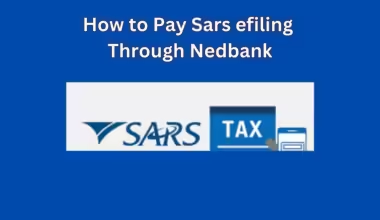Knowing South African taxes is important since they support vital services like healthcare, education, and infrastructure. We can more easily manage our duties as taxpayers when there are clear tax directives in place. By following these guidelines, the South African Revenue Service (SARS) is guaranteed to efficiently collect the appropriate amount of taxes.
What is the process for signing up for eFiling tax directives? The method is simple and enables you to handle your tax affairs online. Open your eFiling account and log in first. It is quick and simple to register if you do not have one. After logging in, proceed to the “Tax Directives” area. Applying for your tax directive will require you to submit particular information about your income and tax status.
The timetable for the SARS tax directive should also be understood. Feedback is often available a few days after your application is submitted. Our ability to be knowledgeable about our tax requirements and in compliance is aided by this speedy turnaround.
This article will answer frequently asked questions, provide an overview of key deadlines, and walk you through the eFiling registration procedure for tax directives. Knowing this will help you better handle your tax obligations and support South Africa’s social and economic development.
How do I register for tax directives on eFiling?
Flexibility is one of eFiling’s finest qualities. If I need to make changes to my tax instructions, I can simply request them. By doing this, I may stay in compliance with SARS and prevent fines for any unfulfilled duties. I not only carry out my obligations but also support South Africa’s development and prosperity by signing up for tax directives.
Logging into your eFiling account is the first step. The registration process is simple and quick if you don’t already have one. Enter your information about your income and tax status in the “Tax Directives” section after logging in.
Follow these steps to sign up for tax directives on eFiling:
- Go to the website for eFiling using www.sarsefiling.co.za and sign up for an account.
- Give your personal and tax information to finish the registration process.
- Click on the link sent to your email to confirm your email address.
- Sign in to your eFiling account and click on the “Registration” tab.
- Tax Directives is one of the registrations you can choose from.
- Fill out the form to register for the tax directive and send it in.
- Once you have signed up for tax directives, you can view and manage them online.
Keeping track of your tax obligations is essential, and eFiling makes it simple. You may take charge of your tax affairs with a few clicks by enrolling in tax directives, contributing to a better future for our country. So, let’s begin enrolling for tax directives on eFiling right now.
How long does it take to get a SARS tax directive?
Making a strategy in advance is crucial to preventing needless stress. Since several things can cause delays, I always advise sending your application before any deadlines.
I make sure to present accurate and thorough information in my request for a tax directive. This step has the potential to greatly accelerate the process. Tax directives are typically issued by SARS in two working days. However, it can take up to 21 working days if your request is more complicated or requires more care.
Being aware of these deadlines enables us to fulfill our tax responsibilities. I can prevent delays and make a beneficial contribution to our economy by applying early and making sure my application is thorough. Therefore, when preparing your submissions, bear these deadlines in mind if you’re wondering, “How do I register for tax directives on eFiling?” Being proactive promotes South Africa’s general development in addition to helping you fulfill your tax obligations.
What does it mean if SARS issues a tax directive?
A tax directive specifies the exact amount of tax that your employer should withhold from your salary, pension, or other taxable income. This ensures that the correct tax is deducted, making compliance with tax laws easier for both employers and employees.
For me, a tax directive is a crucial tool that helps fulfill my tax obligations while ensuring that SARS collects the appropriate amount of tax. These directives clarify and guide how to comply with various tax laws, contributing to a fairer tax system.
Tax directives play a vital role in maintaining equity, ensuring everyone contributes according to their income level. By adhering to these directives, I’m not just staying compliant; I’m also supporting South Africa’s economic growth and development.
If you’re considering, “How do I register for tax directives on eFiling?” Remember that receiving a tax directive means you have clear guidance on your tax responsibilities. It’s all about helping us promote fairness and efficiency in our country’s financial landscape.
Why did SARS decline tax directives?
I’ve discovered as a taxpayer that SARS is stringent about following tax laws and that noncompliance is frequently the primary problem.
Unpaid tax arrears or non-submission of tax returns are among the most common grounds for a refused tax directive. SARS is likely to deny your application if you haven’t paid your taxes. This emphasizes how crucial it is to make sure all of your tax obligations are current before submitting your request.
Errors in your application are another frequent cause of rejection. It is important to double-check your figures because even small mistakes can make your request less successful.
Before applying for tax directives on eFiling, make sure you have paid off all outstanding bills and filed all required returns to improve your chances of having your application accepted. This proactive strategy supports the economic stability of South Africa in addition to facilitating the easy receipt of your tax directive. We all contribute to creating a more sound financial climate for our nation by maintaining compliance.






